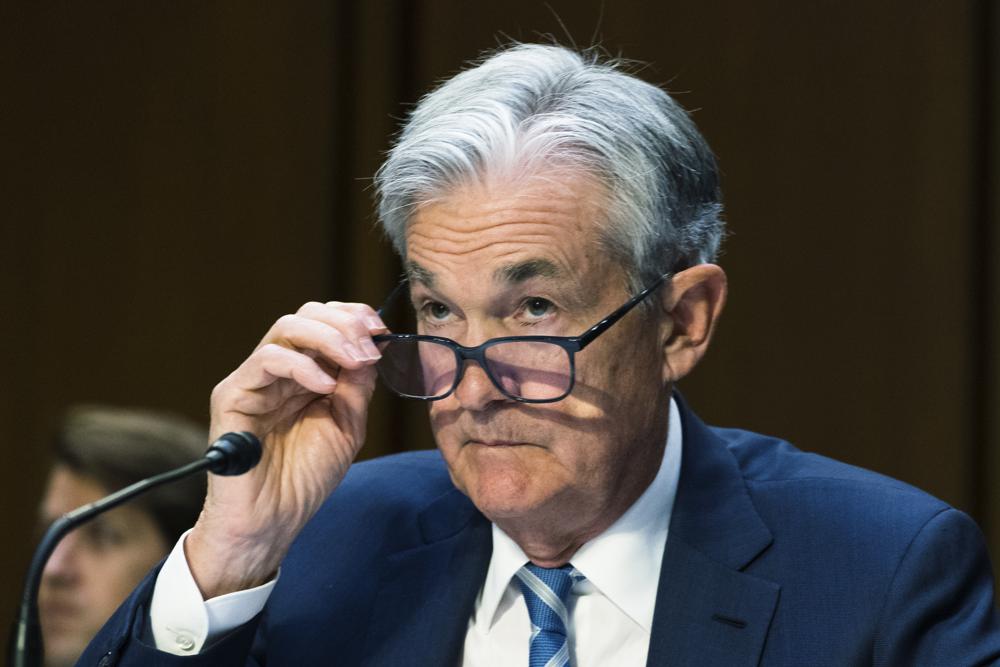
Freshly released minutes of Federal Reserve meetings show officials solidified their resolve in June to keep raising interest rates for longer to prevent higher inflation from becoming entrenched, even if that slowed the US economy.
Policy makers increased interest rates by 75 basis points last month and backed hiking them at their next meeting in July by either 50 or 75 basis points, according to minutes of the Federal Open Market Committee’s June 14-15 meeting released Wednesday. They viewed maintaining the central bank’s credibility to control inflation as crucial.
“Many participants judged that a significant risk now facing the committee was that elevated inflation could become entrenched if the public began to question the resolve of the committee,” the minutes showed. “They recognized the possibility that an even more restrictive stance could be appropriate if elevated inflation pressures were to persist.”
The record was heavy with references to price pressures and why they might take time to ease. Officials “recognized that policy firming could slow the pace of economic growth for a time, but they saw the return of inflation to 2% as critical to achieving maximum employment on a sustained basis.”
10 Southern California real estate trends to track
Two-year Treasury yields, which are sensitive to Fed policy, pushed higher after release of the minutes and investors continued to bet the central bank would hike by 75 basis points later this month.
40-year high
The Fed’s aggressive push to curb the hottest inflation in 40 years has convulsed financial markets as investors fret that tighter monetary policy will tip the US economy into recession. The word “recession” was not mentioned once in the minutes, compared with 90 references to inflation.
“They can lose the battle on the economy, but they can’t lose the war on the inflation anchor,” said Mark Spindel, chief investment officer at MBB Capital Partners LLC. “Powell’s telling you, ‘We’re not blinking’.”
Officials hiked their benchmark rate to a target range of 1.5% to 1.75% in June and Chair Jerome Powell suggested they could do the same thing again in July.
He told reporters at a post-meeting press conference that another 75 basis-point increase, or a 50 basis-point move, was most likely on the table when policy makers gather July 26-27.
Officials went big last month — despite previously signaling they favored a 50 basis-point hike — after inflation data came in hot and a key indicator hinted that expectations for future price pressures could be accelerating among US consumers.
Yelena Shulyatyeva and Andrew Husby from Bloomberg Economics say “Developments since the June decision — intensifying recession chatter, slowing consumer demand, falling oil prices and lower inflation expectations than previously feared — mean the FOMC is more likely to opt for a 50 basis-point hike this month than another supersized move. Still, the Fed has left both options open.”
Recession fears
Several officials since that gathering have echoed Powell’s characterization of the likely outcome of the July rate decision, even as recession fears mount.
The personal consumption expenditures price index, which the Fed uses for its inflation target, has risen 6.3% since May 2021 — more than three times the central bank’s 2% target.
Powell has said there are pathways for bringing inflation down while keeping the labor market strong, but acknowledged it will be a challenge.
Related Articles
Mortgage rates may stay on the up escalator in July
FICO score simulator paves approval path for borderline homebuyers
Highest mortgage rates since 2008 cool housing
Market shift opens door for buyers to make demands of sellers
Mortgage rates rise to 5.81%, highest since 2008
Economists have downgraded growth forecasts on the heels of data showing weakness in consumer spending, a tightening of financial conditions and a decline in US manufacturing activity.
Mortgage rates, which have doubled since the start of the year, are also cooling the housing market and some businesses are seeing lower demand.
Odds of a US recession in the next year are now roughly one in three, according to Bloomberg Economics. Similar pessimism is evident in interest-rate future markets: Investors bet the Fed will reverse course next year, halting rate hikes sooner than officials forecast and beginning to cut rates by mid-2023.
“The FOMC was late to the inflation-fighting game, but they have certainly joined the battle now,” Stephen Stanley, the chief economist at Amherst Pierpont Securities LLC, wrote in an email. “The main question now is how restrictive the FOMC will need to get.”
